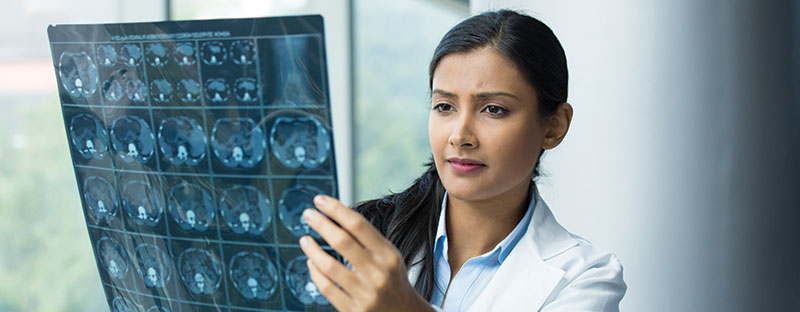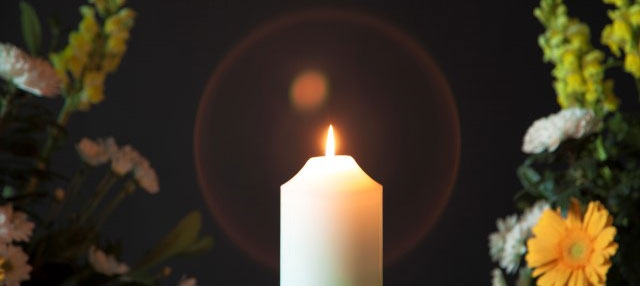Helping train the medical professionals of tomorrow

The Body Bequest Program at the University of Tasmania enables people to ‘donate their body to science’ and make a unique contribution to anatomical studies and the advancement of medicine. The program predominantly assists in the teaching of human anatomy for University of Tasmania medical and allied health students learning to be doctors, nurses, paramedics and scientists. In addition, some donors will contribute to professional development courses such as training surgeons in surgical techniques and procedures. We also offer the opportunity for donors to participate in a local Brain Bank which supports research into brain related diseases.
Even with today’s technology there is no substitute for the direct, practical teaching of anatomy with real human bodies. The medical professionals of tomorrow depend on this vital and highly personal gift to enrich their training. The opportunity to examine the human body, its variability and its complexities is a privilege, and the University of Tasmania teachers and students are extremely grateful to those who donate their body to this program.
The most important aspect in becoming a donor is that you must discuss your wish with your family. If your family is unaware or unhappy regarding the bequest the University will be unable to accept the donation.
Once you have discussed your intentions with your family, and they are supportive of your decision, you can register with the program.
The Program uses donated bodies to study the normal structure of the whole human body. Whilst we strive to accept all donations there may be circumstances in which a donor is not suitable. Certain medical conditions may exclude a person from becoming a donor, for example:
- a coronial enquiry or a post mortem examination;
- recent surgery prior to death;
- the presence of a contagious disease or infection;
- whole organ donation upon death (except corneas);
- physical size and general body condition;
- those assessed to be medically unsuitable.
Their gift allows us to understand the human body in three dimensions and furthermore to recognize what the body actually looks like and the many secrets it holds.
Donations may also be declined due to the University’s storage limitations and cannot be accepted if the donor has been deceased for more than 5 days or if the family does not wish the donation to proceed.
All donations are considered on a case by case basis at the time of death. Age is not an exclusion, but donors must be over 18 years of age to register.
Registration with the program does not guarantee acceptance. A final decision can only be determined once a medical assessment has been completed following the death of a donor. If the University declines to accept the body, it will not be responsible for the funeral arrangements or associated costs. Consequently, the donor and their family are strongly advised to have alternative arrangements in place in the event that the body is unable to be accepted at the time of death.
When a donation is accepted, the University will make arrangements and meet expenses for the transport and eventual cremation of the body. After cremation the ashes will be available for the family to collect. The University may retain a donor’s body for up to five years, or indefinitely (the choice is up to you when you register).
The University of Tasmania ensures total confidentiality throughout the entire body donation process. Dignity, respect and anonymity are accorded to the donor at all times.
In addition to becoming a Body Bequest Program donor you may choose to also become a brain donor via our Brain Bank. This part of the program uses brain samples to find out more about a person’s brain health. The brain, along with the medical history, is used to support research into brain related diseases such as dementia. Donated brain material is retained indefinitely by the University.
Can my family have a funeral service?
Yes, but this must be completed within four days of the death. Arrangements for services or notices in the paper etc. should be made with a Funeral Director of your choice - the University does not help with these arrangements nor bear any of the associated costs.
What happens at the end of the process?
The donor is respectfully cremated, at the University’s expense, and the ashes are made available to the family or Executor.
Can I be registered as an organ donor as well as a Body Bequest Program donor?
Yes, a donor can be registered with both programs. However, if the donor is deemed suitable for organ donation at the time of their death this may exclude them from participating in the Body Bequest Program. If only the corneas are used for organ donation, body donation may still proceed.
What if I change my mind?
You may, at any time and for any reason, revise or revoke your wish to contribute to the Body Bequest Program or Brain Bank by contacting us and advising of the change.
How long will the University retain the body?
The University can retain the body of a donor for up to five years, or indefinitely (the choice is yours when you register).
Will my body stay in Tasmania?
Generally, a donated body will remain within the state of Tasmania. However, there may be instances when a body is transferred to an interstate institution. If this occurs, at the end of the process the body will be repatriated to the State and the ashes made available to the family.

A Ceremony of Appreciation is held biennially. Relatives and friends of donors are invited to attend this special ceremony where staff and students express their deepest gratitude for those who have contributed to education and training through body donation.
They have donated so much more than just their bodies; the nature of their bequest is so profound that we can only aspire to achieve such a selfless persona.
A Book of Remembrance is available for family and friends to sign or record their thoughts or memories. Names of donors are not listed by the University of Tasmania in order to protect their anonymity. The book is on permanent display in the foyer of the Medical Science Building.
Names of donors are not listed by the University of Tasmania in order to protect their anonymity.
If you choose not to donate your body, then please consider making a donation to the Body Bequest Program through the Advancement Office. Your generous support will also assist this important program.
Email: University.Giving@utas.edu.au
Phone: +61 3 6226 1920
When a donor passes away please take the following actions
- As soon as possible after the death please call the Body Bequest Program on 1800 792 661. This number is operational between the hours of 9.00am – 5.00pm, Monday – Friday.
- If a donor passes away in a hospital outside these hours, the deceased will be transferred to an on-site cool storage facility. If a cool storage facility is not available, please contact a Funeral Director of your choice to transfer the donor into their care. Please call the above number the next business day to inform the BBP staff of the donor’s death.
- If a donor passes away in a nursing home (or similar) outside these hours and a cool storage facility is not available, please contact a funeral director of your choice to transfer the donor into their care. Please call the above number the next business day to inform the BBP staff of the donor’s death.
- If a donor passes away at home outside these hours, please call the ambulance or community nurses (if they have been providing home care) and they will assist. If the donor is to remain at home until BBP Staff can be contacted, please keep them cool (e.g. no heating or electric blanket). If the donor needs to be removed from the premises, please contact a funeral director of your choice to transfer them into their care. Please call the above number the next business day to inform the BBP staff of the donor’s death.
BEFORE a donor can be accepted into the program a medical history must be given to Body Bequest Program staff by a senior nurse, attending physician or regular GP. Once BBP staff have been notified of the passing of a donor, they will obtain the medical history as quickly as possible so that the family can be notified as to whether or not the donation is able to proceed.
An OPTIONAL medical assessment can be done ahead of time if a donor is deteriorating and medical staff have indicated that it is likely they will pass away within a week. This option can be helpful to families in terms of indicating whether or not the donation is likely to proceed and also assists with the planning process. A final decision will be made at the time of death.
Funeral companies and medical staff do NOT have the authority to decide if a donor can be accepted or rejected by the Body Bequest Program.
If the donor is accepted into the program, BBP staff will liaise with the family to arrange collection of the donor for transport to the University.
If the donor is unable to be accepted, the family will be informed that alternative arrangements must be made. Unfortunately, the University cannot guarantee acceptance of all donors by the Body Bequest Program.
Can there be a funeral service?
Yes. The donor must be received by the University within five (5) days of the death. BEFORE this time has expired the family may, if they wish, arrange for a normal funeral service through a Funeral Director of their choice. The University does not cover any costs associated with such services.
A PDF version of this information is also available for you to download: What To Do When a Donor Passes Away (PDF 1MB)
Enquiries
Body Bequest Program
University of Tasmania
Tasmanian School of Medicine
Private Bag 34, Hobart, TAS 7001
Medical Science Precinct
17 Liverpool Street, Hobart, TAS 7000
[t] 1800 792 661
[e] body.bequest@utas.edu.au